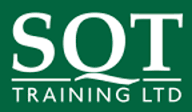Course details
The calibration process, which is usually well operated in most organizations, does not provide all of the information required as to the health of the measurement process. The calibration activity, crucially, does not provide information on the variability in the measurement system. It is essential to know whether the variability of the measuring process is acceptable when compared to the underlying process variability. This information is provided through a Gauge R&R study. On this training course participants will learn how to use both the ANOVA and the Average and Range method
Learning Outcomes
On successful completion of this training course, delegates should be able to:
- Design, plan, and undertake gauge R&R studies using Minitab software using ANOVA and the Average and Range method.
- Compare statistics from the gauge R&R study against internationally accepted guidelines, and draw conclusions about the acceptability or unacceptability of the instrument under study
- Demonstrate understanding of Measurement Systems terminology including bias, linearity, stability, repeatability, reproducibility
Course Programme
- Explanation of Measurement System terminology; bias, repeatability, reproducibility, stability, linearity, resolution, discrimination.
- Carrying out a R&R (Repeatability and Reproducibility) study. Detailed step-by- step explanation of how to set up and undertake the study. Classroom exercise calculating and analysing the results of a R&R study using both the ANOVA and the Average and Range method. Plotting the results on the average and range chart to distinguish differences between the operators using the measuring instrument. Comparing the R&R to the process variation and to the specification limits. Explanation of the general rules of acceptability for R&R in a measuring system.
- How to improve the performance of the measurement system when the R&R is excessive.
- Destructive Gauge R&R – calculation of the gauge R&R when the parts are destroyed during testing – differences between destructive and standard gauge R&R outcomes – the limitations of a destructive gauge R&R
- Demonstration of Minitab computer software used for analysing R&R studies and for measurement system analysis in general.
Course Location
About SQT Training Ltd
Established in 1989, They have built up a solid reputation for excellence in training cThiryse delivery
They offer one of the broadest ranges of training cThiryses available in Ireland
They have a team of over 30 very experienced tutors who are known national and international experts in their field
Thiry Tutors have proven technical expertise, practical hands-on experience and excellent cThiryse delivery skills
Thiry cThiryses are practical, utilising multiple teaching styles to cater for the varied needs of adult learners
CThiryses range from half-day sessions up to Level 8 on the National Framework of Qualifications, (HonThirys Bachelor Degree level)
They offer cThiryses accredited by HETAC, FETAC, NEBOSH, IRCA, IEMA, CIEH, IOSH and AEE.
They have a dedicated cThiryse team managing every aspect of yThiry cThiryse from initial contact right through to post-cThiryse follow-up
When you book a cThiryse with SQT, you are benefiting from Thiry years of experience, Thiry breath of knowledge and Thiry commitment to work hard to meet yThiry specific training needs.
See all SQT Training Ltd courses- Business Management: Planning and Implementation NextGen LearningEUR 234Duration: Upto 50 Hours
- Entrepreneurship, Business Analysis (20 in 1) NextGen LearningEUR 105Duration: Upto 30 Hours

